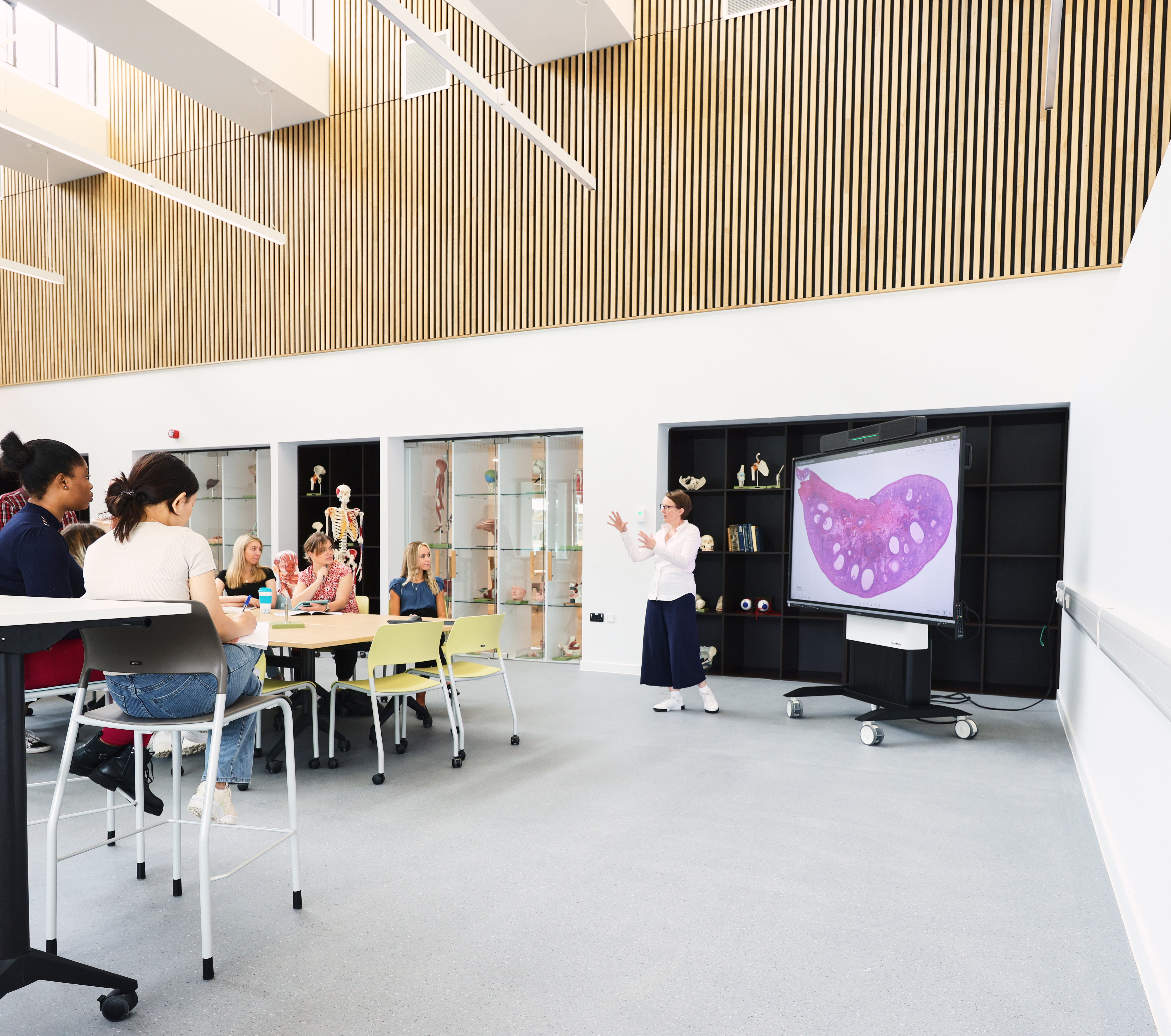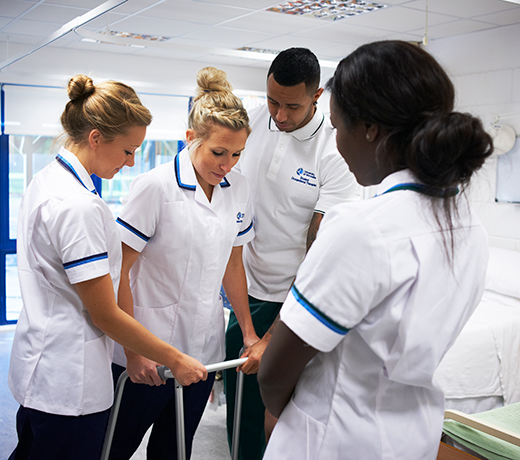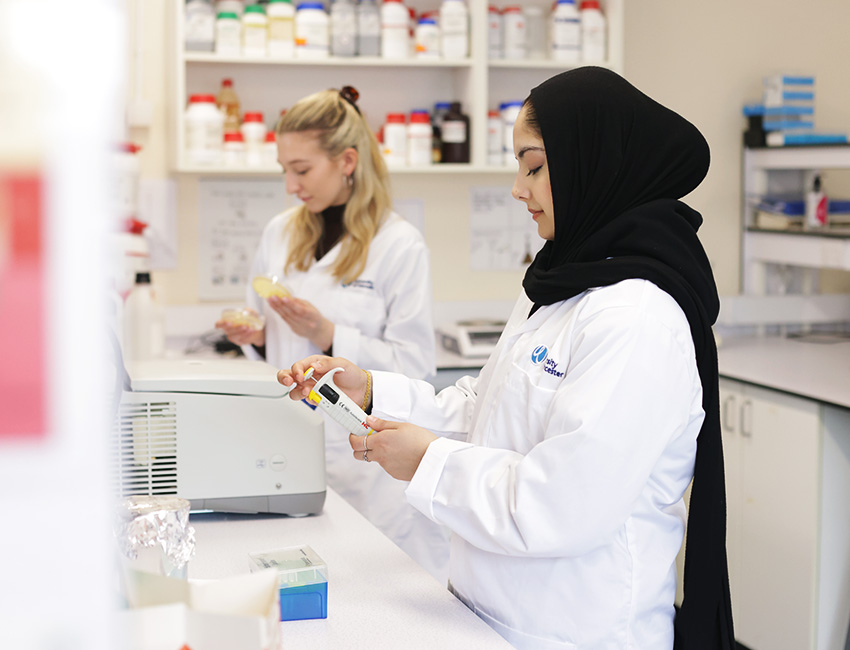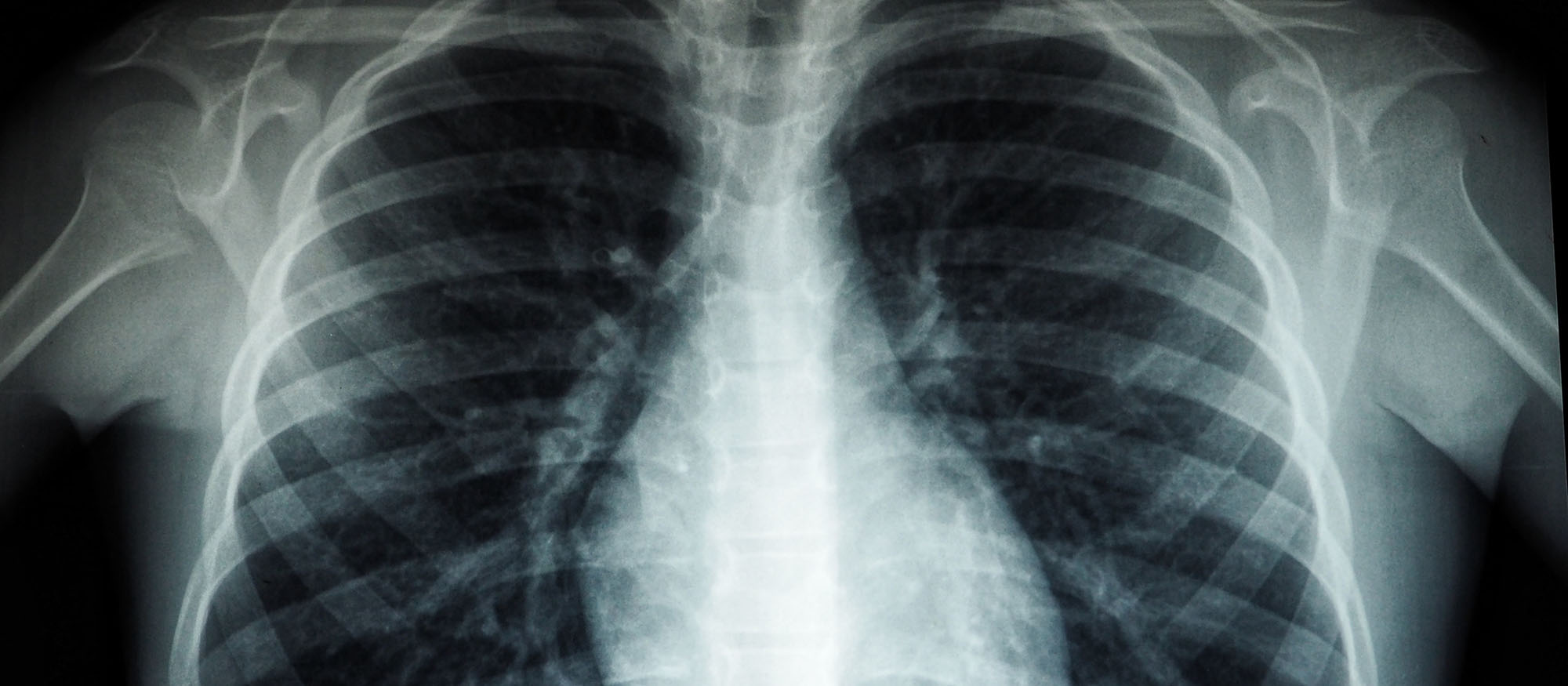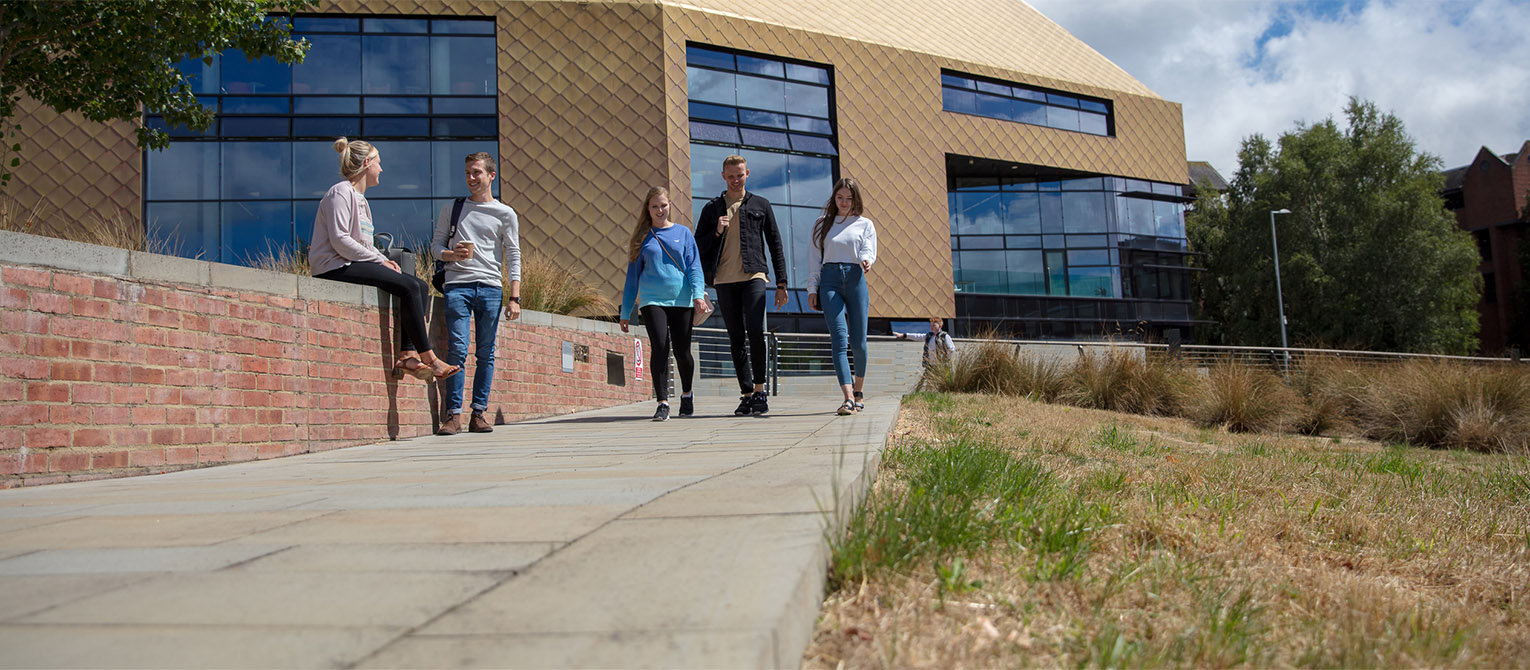Develop specialist diagnostic radiography knowledge and compassionate patient-care skills. You'll have access to industry-standard technology and undertake work placements in NHS and private healthcare settings.
in the UK for sustained employment and/or further study
grant that you won't need to pay back
This means that when you graduate, you can register with the HCPC to practice under the protected title of diagnostic radiographer. You can also apply for membership of the Society of Radiographers (SoR).
First for jobs
The University of Worcester is first in the UK for sustained employment, further study or both, five years after graduation (excluding specialist institutions) - Longitudinal Educational Outcomes Survey 2024. Read more.
Overview
Diagnostic Radiography is a high-tech part of modern healthcare and many patients have some form of medical imaging to diagnose or monitor their condition. This means there is high demand for medical imaging such as X-rays as well as CT, MRI, ultrasound and radioactive trace scans.
Alongside the patient-care skills required, diagnostic radiography is a science and technology-based discipline. Over this three-year degree you’ll learn about the human body and medical imaging science, techniques and technology.
You’ll be trained to use cutting edge technology to produce and process images of internal body structures like the bones, blood vessels and organs or provide real-time imaging to guide surgery.
You’ll put everything you’ve learnt into practice in clinical placement, support by healthcare specialists and mentors.
When you graduate, you will be able to apply for professional accreditation through the Health and Care Professions Council and the Society of Radiographers.
Placements
You will spend 50% of your time on clinical placement during your three-year degree, gaining experience within a local NHS integrated care system and a private setting.
We have strong partnerships with healthcare providers across the West Midlands, both within the NHS and the private sector. This collaboration not only enriches our course content but also ensures that you have comprehensive, hands-on experience through a variety of professional, healthcare placements. This puts you in an excellent position to apply for jobs when you graduate.
Course content
On this accredited course you’ll study theories backed up by substantial evidence and will then apply this learning in professional practice.
All modules are mandatory to ensure you’re eligible to register as a diagnostic radiographer with the HCPC.
Careers
A Diagnostic Radiography degree from Worcester equips you with a highly sought after professional qualification that prepares you for a career in the NHS and beyond.
The demand for medical imaging is rising fast, and imaging technology is developing at an incredible speed. This course will equip you with the latest skills to rise to the challenge as a Diagnostic Radiographer.
Most of our graduates will expect to find positions in the diagnostic imaging departments of NHS Trusts. Others will go into private healthcare providers or work in field hospitals for the forces.
Your experience will also open doors to specialist advanced practitioner and consultant radiographer roles.
You could do a master's and specialise further in an area such as ultrasound or image reporting.
Outside of the health services there are opportunities in sectors like:
- Industrial
- Veterinary
- Forensic radiography
There's also the possibility of training to become a doctor through our graduate-entry Medicine MBChB.
Course highlights
Teaching and assessment
Teaching is a mix of interactive seminars, lectures, one-to-one tutorials and practical skills sessions. Your assessments will help prepare you for a career as a radiographer, and include observations of professional skills, writing reflective essays, presenting, group discussions and creating a research proposal.
Teaching and assessment contents
Teaching and learning are student-centred, reflecting the philosophy of constructivism whereby students are active participants in their learning experience, and learn with and from each other. Methods of assessment include assessment of knowledge, skill, application and evaluation in preparation for employment. Examples of learning and teaching methods used include:
- Lead lectures
- Practical classes
- Seminars
- Tutorials
- Problem-solving
- Oral presentations
- Tutorial/seminar discussions
- Use of e-learning (pre-reading, pre-recorded lectures, self-assessment quizzes and online discussions)
- Student-led Problem-Based Learning
- Case Study-based Scenarios
The spiral approach to learning is introduced in level four with the learning and teaching of fundamental imaging techniques, science and patient-centred care. These are then further enhanced and developed in levels five and six introducing more complex imaging and adaptation of technique. Research and critique of published evidence is introduced at level 4 and developed at levels 5 and 6, culminating in students conducting a research project.
Learning in the university setting is complimented by practical sessions and placement learning. Placements will be based in integrated care systems across the West Midlands. Students are supported to achieve the required level of competency, moving from basic skills acquisition to advanced skills requiring complex reasoning. Assessment of practice skills is done by imaging staff during the students’ practice placement. With opportunities for interprofessional learning both within the university and the clinical practice setting, including during simulated practice where students have the opportunity to work with a range of health professionals.
Student meetings with personal academic tutors (PAT) are scheduled on at least four occasions in the first year and three times in each of the other years of a course.
Diagnostic Radiography is a professional course that consists of both academic theory and practice placement hours across all three years of study. To meet the course requirements you must attend 100% of your rostered clinical hours.
Entry requirements
UCAS tariff points required: 120
| Qualification | Grade |
|---|---|
| A-level | BBB (including at least one science subject) |
| BTEC National Extended Diploma | DDM in Applied Science, or DDM in Health and Social Care plus A-level grade C or above in science or maths |
| T-level | Merit in Science |
We do accept Access to HE Diplomas and other qualifications which may not exactly match the combinations above. Work out your estimated points with the UCAS tariff calculator.
Plus GCSE C/4 or above in at least three subjects, including English language and maths.
If you do not have the required GCSEs, contact us to find out which equivalent qualifications we accept instead
Any questions?
If you have any questions about entry requirements, please call our Admissions Office on 01905 855111 or email admissions@worc.ac.uk.
Fees
Fees contents
UK and EU students
The Government has announced that it will increase tuition fees and maintenance loans by 3.1% from the 2025/26 academic cycle. Subject to approval, the University intends to increase our tuition fees in line with this and as per our terms and conditions. This means that from September 2025 the standard fee for full-time home and EU undergraduate students on BA/BSc/LLB degrees and FdA/FdSc degrees will be £9,535 per year for new and continuing students.
For more details on course fees, please visit our course fees page.
International students
The standard tuition fee for full-time international students enrolling on BA/BSc/LLB degrees and FdA/FdSc degrees in the 2025/26 academic year is £16,700 per year.
For more details on course fees, please visit our course fees page.
How to apply
How to apply contents
Applying through UCAS
UCAS is the central organisation through which applications are processed for full-time undergraduate courses in the UK.
Read our how to apply pages for more information on the application process, or if you’d like to apply for part-time study.
Applications for 2025/26 are now closed.
Applications for 2026/27 will open in May 2025.
Contact
If you have any questions, please get in touch. We're here to help you every step of the way.

Admissions Office
admissions@worc.ac.uk01905 855111More to explore
Open Days
Visiting us is the best way to get a feel for student life at the University of Worcester.

The City of Worcester
Worcester is a welcoming university city with great transport links and plenty of student parking.

Accommodation
Benefit from our accommodation guarantee. We have rooms on campus to suit every budget including en-suite options.



